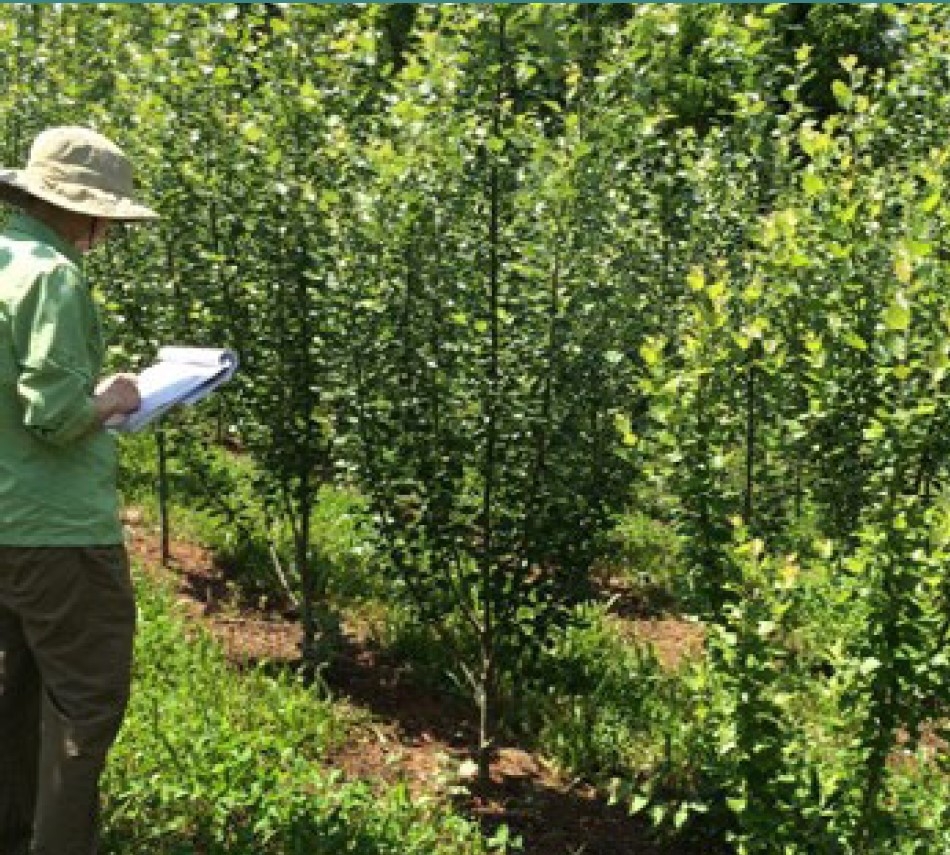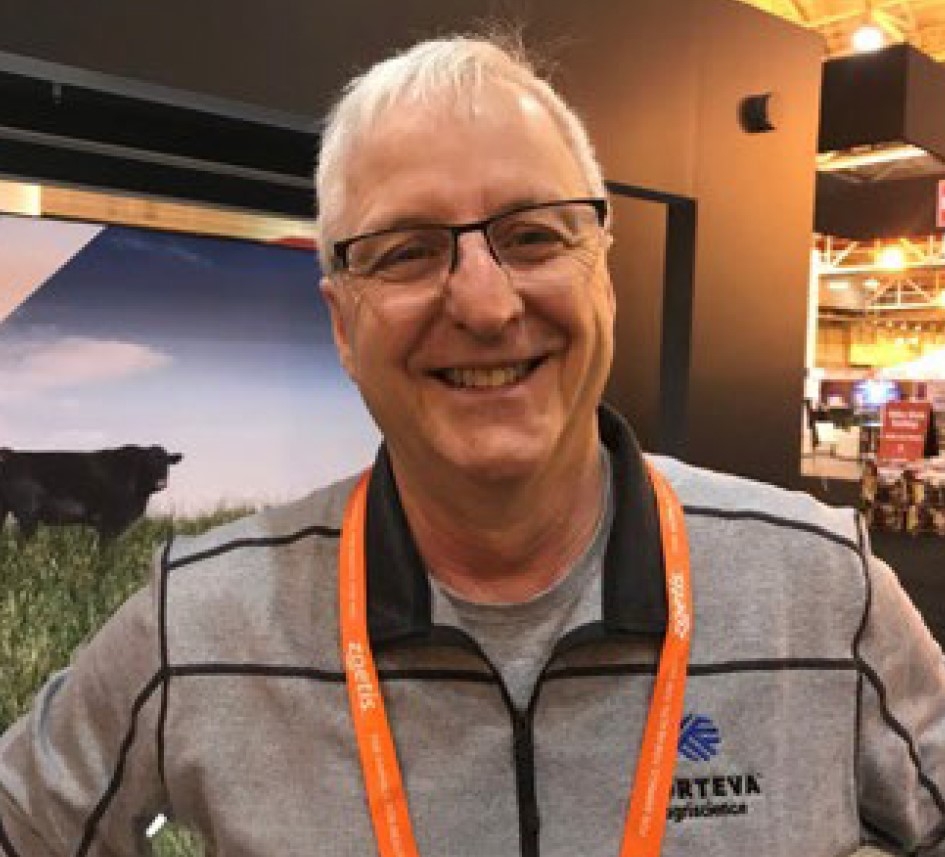Reynolds Homestead Forestry Resources Research Center
ID
AREC-74NP (AREC-299NP)

A primary research focus of the Reynolds Homestead FRRC AREC is conducting ecophysiological and silvicultural studies in an effort to understand better how trees grow in order to optimize productivity and sustainability in southern pine and hardwood plantations. Much of this work is done in conjunction with the Forest Productivity Cooperative on the Regionwide 20 study site that was established on the Homestead in 2009.
Partners in the cooperative include the four host universities – Virginia Tech, North Carolina State University, University of Concepcion in Chile, and Lavras University in Brazil – as well as the forest industry, timber management investment organizations, forestry consultants, governmental agencies, private landowners, and others interested in intensive plantation management. Members own or manage over 24 million acres (10 million hectares) of pine and broadleaved plantations in the southeastern U.S. and Latin America. The Regionwide 20 study is examining why loblolly pine (the primary commercial tree species in the southeastern U.S.) grows much faster in South America. If we can develop an understanding of the mechanisms that make this rapid growth possible, we may be able to improve our management of loblolly in the southeastern U.S. The result could be a step change in our understanding rather than the typical incremental gains we obtain from our research.

“Genomics and biotechnology together with field trials and greenhouse studies at the FRRC allow us to connect genes to traits important for sustainable wood production and forest health. More than 20 undergraduate, graduate, and post-doctoral researchers have worked on these studies over the past 13 years.”
AMY BRUNNER
ASSOCIATE PROFESSOR, FOREST RESOURCES AND ENVIRONMENTAL CONSERVATION

“The woody plant screen at the AREC has evolved into a critically important tool for evaluating plant responses under controlled environmental conditions. The system design and studies at this site have been reviewed by experts in our company from around the globe and have led to important discoveries in product development.”
PAT BURCH
SENIOR RESEARCH FIELD SCIENTIST CORTEVA AGRISCIENCE
Reynolds Homestead at Glance
Disciplines
- Silviculture
- Forest genetics
- Forestry BMP’s
- Christmas trees
Innovative Technologies
- Plant canopy analyzer
- Aces system for root gas exchanges analysis
- Tree genomics
Facilities
- 780 contiguous acres
- 2 greenhouses, slat house, coolers, cold frame, and tractor sheds
- Lab space, offices, student, and superintendent housing
Industry Partners
- Forest productivity coop
- Forestry herbicide industry
- Tree farmer associations

About the Reynolds Homestead FRRC
The Reynolds Homestead Forest Resources Research Center was created in 1969 to study forest biology, including genetics, physiology, and soils. The AREC was founded to serve a void that existed in our understanding of the biological and physical relationships of the forest ecosystem. Specific projects include harvesting to increase forest health and productivity, site preparation, forest fertilization, loblolly pine physiology, and forest herbicide testing.
A Collaborative Network
The ARECs are a network of 11 centers strategically located throughout the state that emphasize close working relationships between Virginia Agricultural Experiment Station, Virginia Cooperative Extension, and the industries they work with. The mission of the system is to engage in innovative, leading-edge research to discover new scientific knowledge and create and disseminate science-based applications that ensure the wise use of agricultural, natural, and community resources while enhancing quality of life.

Partner With Us
407 Homestead Lane Critz, Virginia 24082
(276) 694-4135
Virginia Cooperative Extension materials are available for public use, reprint, or citation without further permission, provided the use includes credit to the author and to Virginia Cooperative Extension, Virginia Tech, and Virginia State University.
Virginia Cooperative Extension is a partnership of Virginia Tech, Virginia State University, the U.S. Department of Agriculture (USDA), and local governments, and is an equal opportunity employer. For the full non-discrimination statement, please visit ext.vt.edu/accessibility.
Publication Date
January 1, 2024



